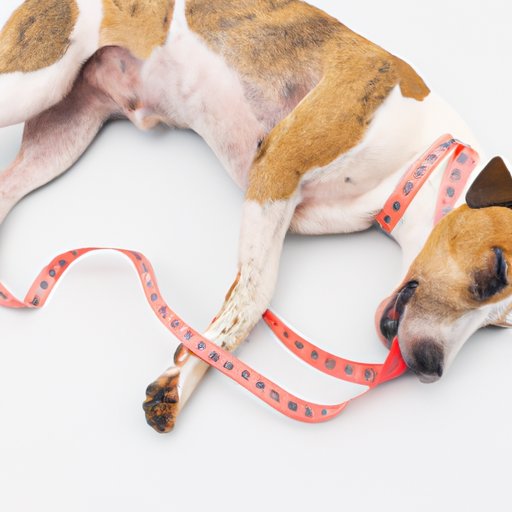
Introduction
Dogs who are underweight can suffer from a range of health issues, including weakened immune systems and decreased energy levels. While some dogs may naturally be slimmer than others, chronic or excessive weight loss can be a sign of an underlying health problem that requires medical attention. As such, it’s always a good idea to consult with a veterinarian before attempting any drastic changes to your dog’s diet or exercise routine. Additionally, it’s important to keep in mind that successful weight gain is a gradual process, and too-rapid changes can come with their own set of health risks.
Increasing caloric intake
The most obvious way to help a dog gain weight is by increasing the number of calories they consume each day. However, it’s important to do this in a safe, measured way that doesn’t cause your dog to gain weight too quickly or consume too many unhealthy foods. To get started, you’ll need to calculate your dog’s daily caloric needs, based on their weight, age, and activity level.
Once you have a target number for daily calories, you can begin to add in extra calorie-rich foods. Foods with a higher fat content, such as chicken, turkey, and beef, can be good options, as can oils like fish oil or flaxseed oil. Additionally, you can try adding in healthy carbohydrates like brown rice or sweet potatoes, which can help provide extra energy without overloading your dog’s digestive system. Be sure to monitor your dog’s physiologic changes and weight gain as you make changes to their diet.
Supplements for weight gain
In some cases, supplements may be necessary to help your dog gain weight. Popular supplements for dog weight gain include probiotics and digestive enzymes, which can help improve nutrient absorption, and omega-3 fatty acids, which can help reduce inflammation and improve heart and joint health. Keep in mind that not all supplements are created equal – be sure to research brands and ingredients carefully and talk to your vet before starting your dog on any new supplement regimen.
Meal plans for underweight dogs
Developing meal plans tailored to your dog’s underweight diet is important in helping your dog regain the weight. The meal plans should aim to provide sufficient calories while ensuring your dog receives balanced nutrients. The meals can consist of high-calorie dry foods, but wet foods may be a good option, especially for dogs with dental problems. Other food options that you can incorporate into your dog’s meals include chicken, beef, turkey, lentils, and white rice. You should also avoid commercial treats that are high in sugar and preservatives and make homemade treats instead.
Portion control and feeding schedules
Sticking to a regular feeding schedule and portion control is very important in making sure your dog gains weight in a healthy and sustainable manner. It’s essential to ensure that the portions or meals are sufficient for your dog’s dietary needs. However, avoid overfeeding your dog as it can lead to health problems like obesity. Keep in mind that feeding too much or too little can have negative consequences for your dog’s overall health. Set a specific schedule of feeding times and follow it to the letter. Dogs love consistency and knowing when their next meal is, so plan ahead to help keep your pup on track
Exercise routines for muscle building
While diet changes are key to helping your dog gain weight, exercise routines and proper physical activities are important to your dog building lean muscles, and regaining healthy weight. Cardio exercises such as brisk walking, running, hiking, and swimming can help your dog build muscle mass, increase metabolism rate, and burn Fatty acids. It’s important to gradually increase the intensity and duration of the exercises to avoid over-exerting your dog. Remember, exercise can only help your dog gain weight in conjunction with a nutritious and healthy diet.
Conclusion
Gaining weight can be a major challenge for underweight dogs, but it’s not an impossible one. By working with your veterinarian and employing a comprehensive strategy that includes diet changes, supplements, and exercise routines, you can help your dog regain a healthy weight and enjoy a better quality of life. Be patient and consistent, and don’t be afraid to ask for advice or support, when needed. With the right care and attention, your underweight dog can become a healthy, happy, and much-loved member of your family.





